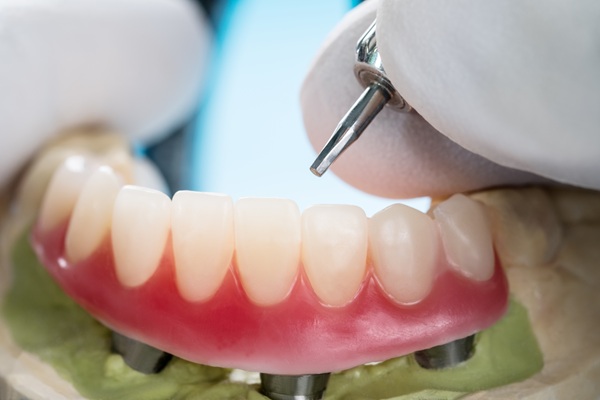Dental Deep Cleaning Aftercare

In need of a dental deep cleaning and wondering what to expect? General dentistry focuses on ensuring patients' mouths are healthy, which includes deep cleanings. Knowing what to do before and after a deep cleaning helps to support a healthy mouth.
About dental deep cleanings
Want to understand why a dental deep cleaning is necessary? Also known as scaling and root planing, a deep cleaning is often required for dental patients who do not undergo regular dental cleanings. Regular cleanings help remove any plaque or tartar buildup on one's teeth. Plague or tartar can build up beneath the gum line when a long time goes by without undergoing a routine dental cleaning. Once the gum line is infected, only a dental deep cleaning can restore a patient's dental health.
Aftercare instructions
The list below includes examples of some of the more important aftercare instructions dental patients need to follow after undergoing a deep cleaning to improve the overall health of their mouths.
Eating
Patients who receive any type of anesthesia should not eat until all of the numbness has worn off. It is necessary to avoid biting one's lips, cheeks, or tongue when chewing. Patients who have not undergone anesthesia must wait a minimum of two hours before eating. Patients should consume only soft foods during the first 72 hours. They should also completely avoid spicy foods and alcohol until their mouth has completely healed, which tends to be somewhere between three days and two weeks.
Saltwater rinse
Once 24 hours have passed following the dental deep cleaning procedure, patients need to rinse their mouth with saltwater. Saltwater helps to keep one's mouth free from infection, which is important after undergoing a dental deep cleaning. While every patient will receive their own specific instructions, general guidelines for rinsing the mouth with salt include doing so four to six times a day for at least a couple of weeks. Add about ¼ teaspoon of salt to a glass of warm water to make a salt water rinse at home.
Oral care
While the patient's mouth is healing, they should use gentle care when brushing their teeth. This requires them to use a soft-bristled toothbrush and quality tooth floss. While patients can use water flossers instead of regular tooth floss, it is important not to place a lot of force around the gum line area. Patients can use a mouth rinse after 48 hours; however, dentists recommend saltwater. Patients prescribed antibiotics need to take the full course, as this helps ensure an overall healthy mouth.
Schedule an appointment today
Dental patients needing a dental deep cleaning should be treated as soon as possible. Otherwise, their dental problems will continue to worsen, which could require additional treatment. To learn more about dental deep cleanings, reach out to our Chesapeake office today to schedule an appointment.
Request an appointment here: https://shdentalva.com or call Safe Harbor Dental at (757) 333-0087 for an appointment in our Chesapeake office.
Check out what others are saying about our dental services on Yelp: Dental Deep Cleaning in Chesapeake, VA.
Related Posts
A dental cleaning is an essential part of general dentistry care for individuals of all ages, including toddlers. Many parents are under the impression that toddlers do not need a dental cleaning because their teeth will eventually fall out, but this is far from true.Dental cleanings should be undergone on a regular basis, no matter…
A dental deep cleaning is an in-depth cleaning procedure that is typically done by a dentist who offers periodontal services. These cleanings are called "deep cleanings" because they go much deeper beneath the soft tissues than a traditional cleaning would. During a dental deep cleaning, a general dentist will scrape beneath the gum tissues and…
Getting a dental cleaning is an essential part of maintaining good oral health. However, it can be difficult to know how often to get one done. Most general dentists recommend dental cleanings twice a year, but there are certain signs to be aware of that can indicate a need for them more frequently. Outlined below are…
A preventive dentist promotes long-term oral wellness by focusing on early detection, regular checkups, and proactive measures to protect teeth and gums from disease. By prioritizing prevention, you can avoid many dental issues before they even begin. Explore some of the most frequently asked questions about preventive dentistry, gain valuable insight that can help you…


